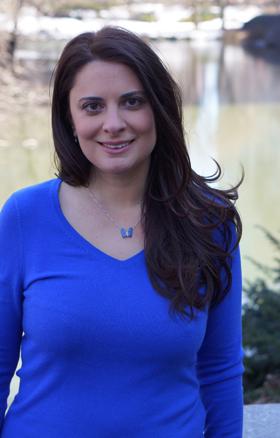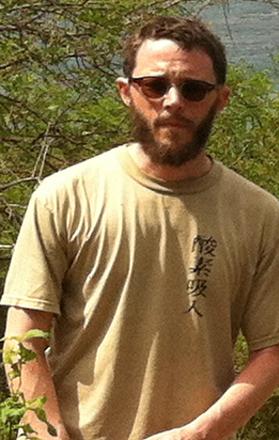
Professor Fazio's NSF CAREER award may lead to game-changing cryptography techniques.

Professor Hickerson's NSF CAREER Award will help him use genes to reconstruct the deep history of species' movements in response to climate change.
Two scientists from The City College of New York have won National Science Foundation (NSF) Faculty Early Career Development (CAREER) Awards to support their research, teaching and outreach over the next five years.
Dr. Nelly Fazio, assistant professor of computer science, and Dr. Michael Hickerson, assistant professor of biology, received the honors as junior faculty who “exemplify the role of teacher-scholars through outstanding research, excellent education and the integration of education and research,” according to NSF.
Broadcasting Cryptography
Professor Fazio will receive more than $460,000 to develop cryptographic techniques to securely and anonymously broadcast encrypted messages to many people simultaneously. Her project, called “Anonymous and Robust Multi-Recipient Communication: Foundations and Applications,” has potential applications in defense, sensitive government and corporate communications and in broadcasting to nations where free speech is restricted or dangerous to practice.
“The focus in the past has been to make sure the message remains secret, that the communication is efficient, and that you have some guarantee that only the intended receivers can see it,” explained Professor Fazio. “A guarantee of security for the receivers has been overlooked.”
Not only would a broadcaster remain anonymous but, with improved tools, receivers of the message also could be hidden from each other.
Professor Fazio will also investigate techniques for hiding the fact that a message includes encryption from all but those given a key to reveal it, a technique called broadcast steganography. “For example, an activist or blogger in a country that curtails free speech can pretend he is only posting a picture of his cat,” she said, “But hidden inside it is a message for his followers.”
To thwart infiltrations, Professor Fazio’s systems would allow precise control of access to the hidden message. This could be world-changing for some, she said. “Right now you can’t trust all your followers. But if they don’t even see that you have an encrypted message hidden in the picture, you have not only secrecy, you have stealth.”
Professor Fazio plans to develop a seminar for graduate students and an advanced capstone course for undergraduates to learn how to code securely and implement some of the protocols from her research. The grant will allow her to expand her team by hiring graduate and undergraduate students.
Revealing History in the Genome
Professor Hickerson’s NSF award provides more than $660,000 to develop computational models that use DNA evidence to reconstruct how communities of species have responded to climate change. His project is titled “Dynamic Models of Isolation and Admixture for Community-Scale Population Genomic Inference.”
Biogeographic researchers like Professor Hickerson are usually restricted to modeling species histories using either a small number of genes across many species or large chunks of the genome from just a few well-studied species, such as fruit flies or humans. Professor Hickerson wants to do both, using thousands of genes at once to test scenarios of how multiple populations within an ecological community can expand, contract, move and go extinct as climate change modifies the habitat.
“We are dealing with the complexity that’s associated with real histories, with what happened to a species in the last cycles of climate change,” he explained. “We want to combine species into a global model.” The award will allow him to collaborate and model historical scenarios with teams studying many different types of animals and communities.
For the outreach component of the grant, Professor Hickerson will coordinate an event with the American Museum of Natural History in the fall. He and his colleagues will explore human genomic diversity in New York City by analyzing DNA samples from a pool of 200 City University of New York student volunteers.
At the event, the analysis will demonstrate how a sample of only 200 people can reveal both recent and deep histories of the human species. Professor Hickerson will also lead a panel discussion of the results with a bioethicist, philosopher and other prominent researchers in population genomics. “The idea here is for people to become literate in how the history of humans is embedded in their own genomes,” he said.
On the Internet
- Nelly Fazio
- Michael Hickerson
MEDIA CONTACT
Jessa Netting
p: 212.650.5310